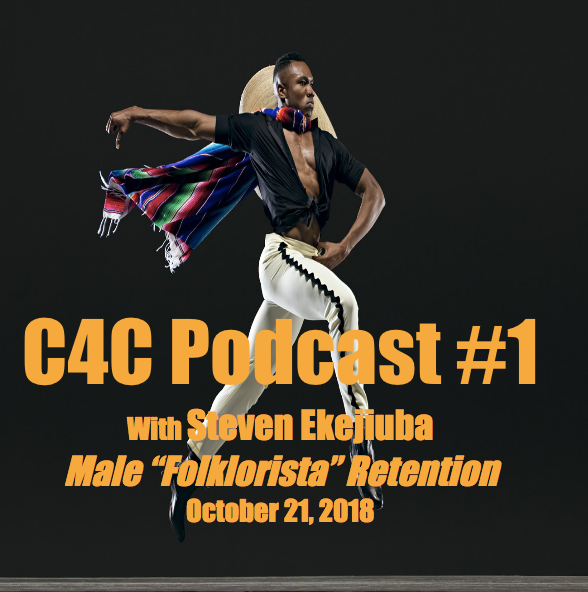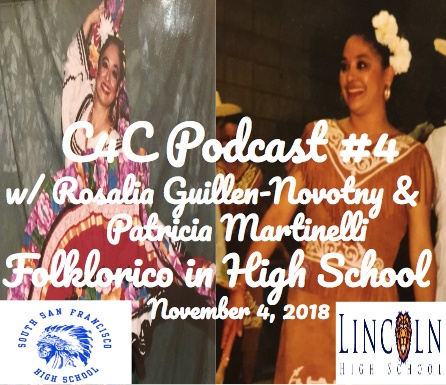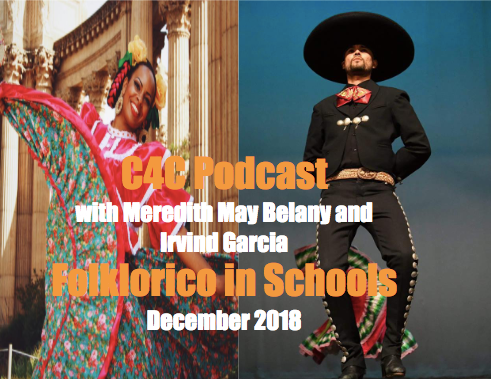Podcast #1: Male Retention in "Folklorico"
- Christopher Sandoval

- Oct 4, 2018
- 2 min read
Updated: Oct 26, 2018
Mexico Danza de Hayward and UCSC Mejica Alumni member Steven Ekejuiba will be sharing his reflections on the causes of low retention of males in folklorico throughout his cultural dance career with C4C director Christopher Sandoval.

Preface
Males across the age spectrum in dance, primarily early adolescents to young adults, have historically had negative stigmas compromising their "manhood". In this podcast, C4C contributor Steven Ekejiuba and C4C project director Christopher Sandoval discuss the patterns and complexity behind the dozen men they interviewed who are actively involved in the social practice of Mexican Folk Dance, "folklorico", in association with their own narratives in this cultural performing work for 10+ years in the American southwest.
We would like to sincerely thank the interviewees for sharing their unique and powerful stories with us to prepare for this podcast: Nazul Ramirez, JuanPablo Vidrio, Samuel Cortez, Irvind Garcia, and anonymous.
Interview Question Set:
1) What is your dance background/experience? How long have you done it?
2) Why did you dance folklorico when you started, and how has it changed now, if so?
3) When you think of males in folklórico, what comes to mind? What do you think is a general perception of males that dance folklórico?
4) Have you ever felt that anyone has or may look down on you because you dance? What about supporting? If so, please explain.
5) Have you ever felt the urge to take a break from or just stop dancing folklórico altogether? If so, please explain.
Podcast Highlights
Who is "thee" Steven Ekejuiba, and indeed how far back do Christopher and Steven go?
What are the general perceptions of being male in folklorico from living within as an active member and looking in as an outsider?
What are some reasons for low male retention in folklorico?
How do we illuminate the path forward for ourselves and for other ambassadors and leaders of this social practice to proactively increase male retention?
Introducing Alexandro, El Charro Ninja.





Finally, had a chance to log in. Saw this awhile back. Wonderful topic. It peaked my interest to the many paradoxes within folklorico. Reminds me of how we as teachers instruct our students to perform their gender. Many of our dance movements follow traditional gender roles. Also, too am thinking of ways to teach in a more inclusive manner.